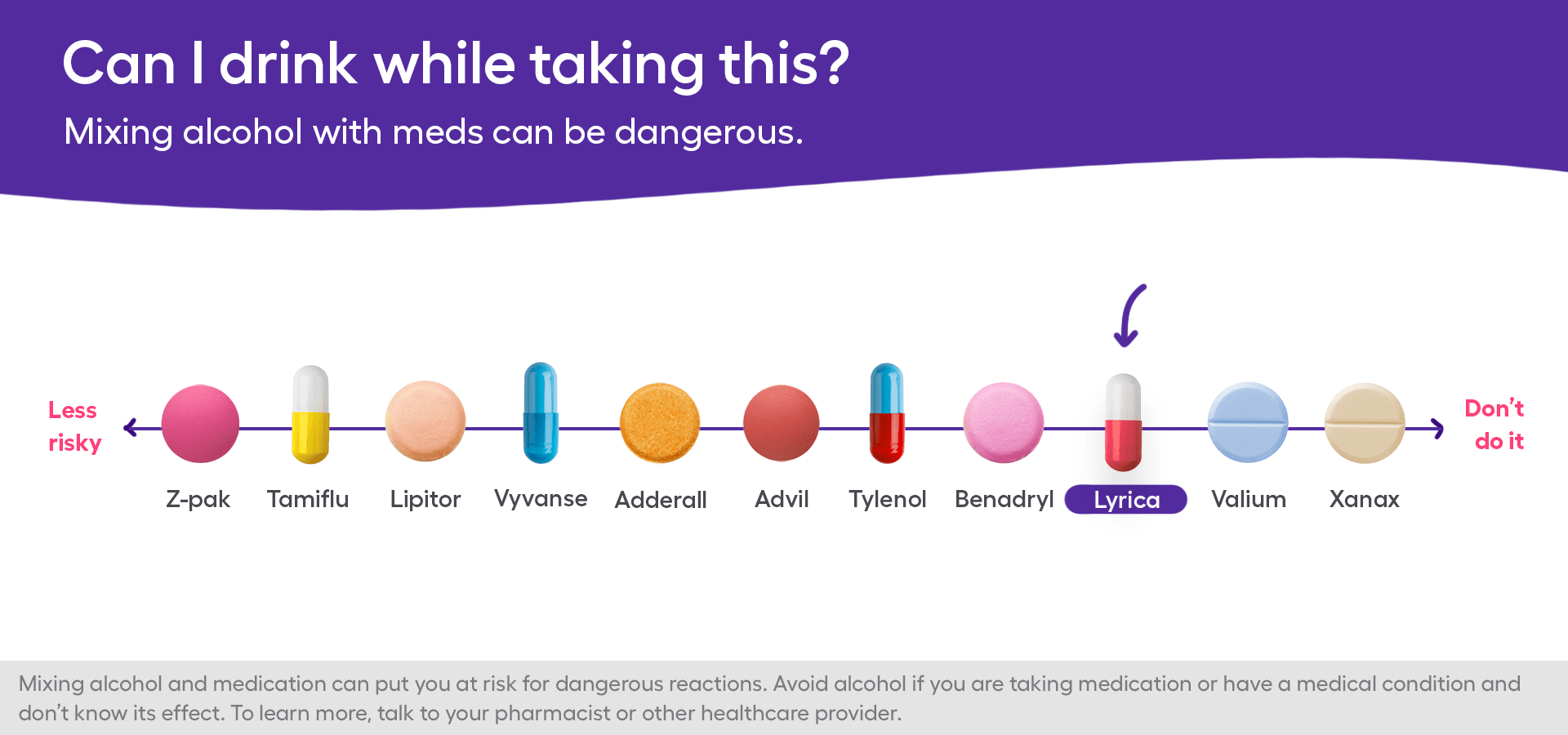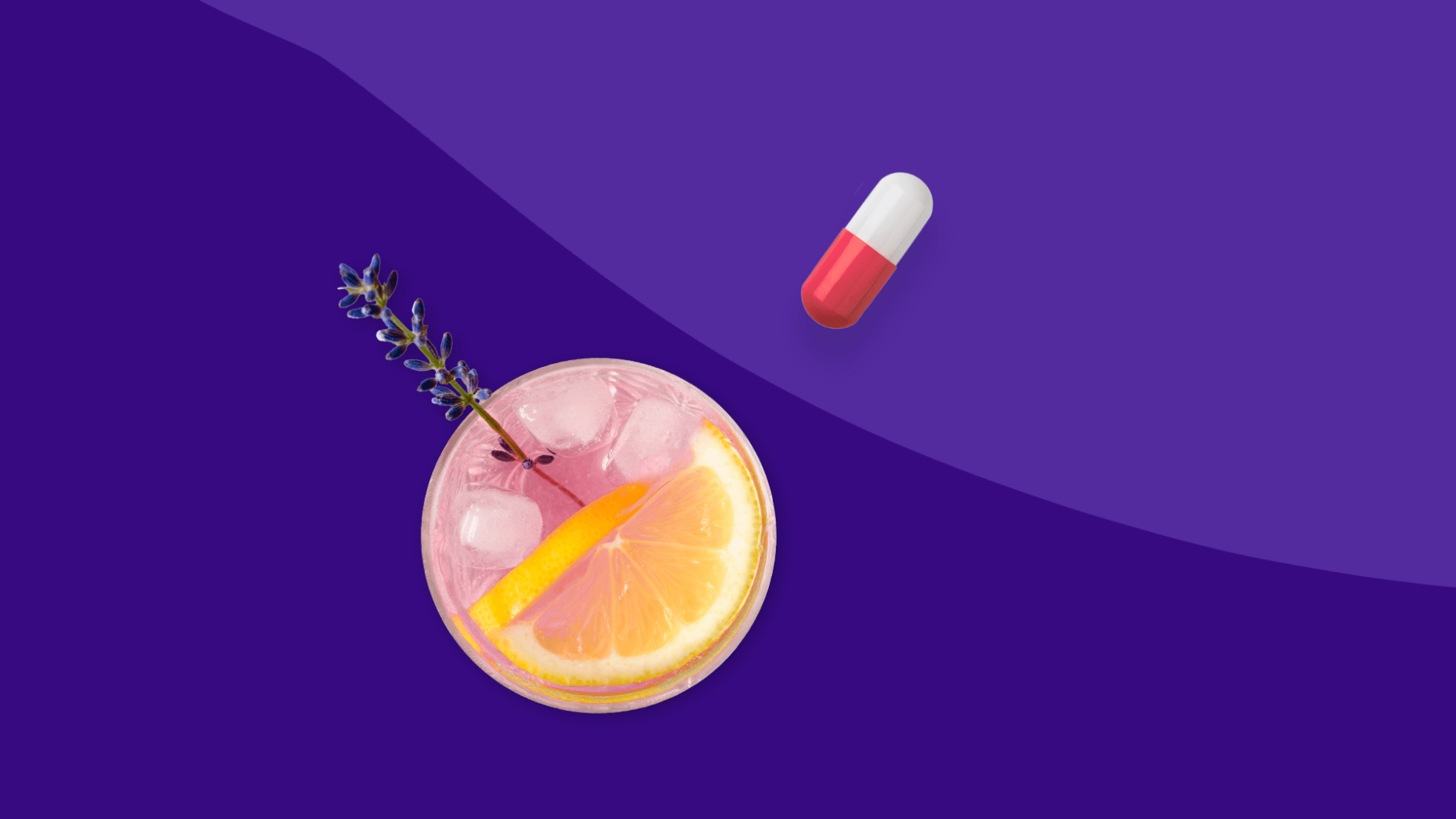Key takeaways
Lyrica is an FDA-approved anticonvulsant drug used for managing nerve pain, fibromyalgia, and partial-onset seizures. It is a controlled substance and has the potential for abuse and dependence.
Mixing Lyrica and alcohol is dangerous as it can potentiate the impairment of motor skills and sedating effects, and cause respiratory depression.
Alcohol should not be mixed with any anticonvulsant medication due to increased dizziness and drowsiness.
Chronic alcohol abuse may be linked to the development of epilepsy, and even moderate drinking can increase the risk of seizures, thus requiring careful consultation with a healthcare provider.
Just before you take your evening dose of Lyrica, which you might take for fibromyalgia, you remember that you are going out with friends for late-night drinks. You pause, wondering, is it safe to mix Lyrica and alcohol? Read on to find out.
What is Lyrica?
Lyrica (pregabalin) is a prescription drug that is approved by the Food and Drug Administration (FDA). Lyrica is classified as an anticonvulsant drug and is indicated for the following conditions:
- Management of nerve pain associated with diabetic peripheral neuropathy or spinal cord injury
- Management of postherpetic neuralgia (nerve pain that occurs after shingles)
- Management of fibromyalgia
- Treatment of partial-onset seizures (in combination with other medication)
Lyrica is a controlled substance, which means it has the potential for abuse and dependence.
Although the way Lyrica works is not fully understood, it is thought to either work on damaged nerves or calm overactive nerves. Studies suggest that Lyrica may lower electrical signals sent out by damaged nerves. 
Can you take Lyrica with alcohol?
Bottom line: No, you should not drink when you are taking Lyrica. According to the prescribing information, people who take Lyrica should “avoid consuming alcohol while taking Lyrica, as Lyrica may potentiate the impairment of motor skills and sedating effects of alcohol.”
In other words, Lyrica or alcohol, on their own, can cause effects like sedation, dizziness, and impaired coordination. This is known as CNS (central nervous system) depression. Mixing the two causes additive effects and is dangerous.
Lyrica and alcohol consumption can also cause respiratory depression. In 2019, the FDA announced that Lyrica—as well as Neurontin (gabapentin)—could cause severe breathing difficulties in people who have respiratory risk factors. These risk factors include older age, reduced lung function (due to pulmonary disease), or the use of opioid pain medications or other drugs that depress the central nervous system—this would include alcohol.
Also, it’s important to note, people with a history of alcohol or drug problems are more likely to misuse Lyrica.
Can you drink alcohol while taking other anticonvulsants?
According to the National Institute on Alcohol Abuse and Alcoholism, alcohol should not be mixed with any anticonvulsants due to increased drowsiness and dizziness. In addition to Lyrica, these medications include:
- Dilantin (phenytoin)
- Keppra (levetiracetam)
- Klonopin (clonazepam)
- Lamictal (lamotrigine)
- Neurontin (gabapentin)
- Phenobarbital
- Tegretol (carbamazepine)
- Topamax (topiramate)
- Trileptal (oxcarbazepine)
RELATED: Lyrica vs. gabapentin
Also, Keppra (levetiracetam) plus alcohol increases the risk of seizures. And Topamax (topiramate) and alcohol together can also cause unusual behavior and suicidal thoughts.
Save up to 80% on Lyrica with SingleCare
Different pharmacies offer different prices for the same medication. SingleCare helps find the best price for you.
Does alcohol make seizures worse?
Keep in mind that everyone is different, and you should talk with your doctor to determine if you can drink alcohol at all, and if so, how much you can safely drink depending on your symptoms, medical history, and medications you take.
Small amounts of alcohol, such as an occasional one or two drinks, generally do not increase seizure activity or affect seizure medications in your body. Seizures related to alcohol are often associated with alcohol withdrawal, rather than the act of drinking. Consuming three or more alcoholic beverages may significantly increase seizure risk. Binge drinking and the resulting alcohol withdrawal may lead to status epilepticus, which could potentially be fatal.
Chronic alcohol abuse (alcoholism) may be linked to the development of epilepsy in certain cases. This means that people who have had seizures after binge drinking may begin to have seizures even when not drinking alcohol.
If your healthcare provider gives you the green light to drink alcohol in small amounts or in moderation, you should:
- Avoid binge drinking (binge drinking can cause withdrawal seizures).
- Not abuse alcohol—get help if you need it.
- Drink small amounts (less than three drinks), and drink slowly.
- Talk to your doctor about alcohol consumption as related to seizures and medication.
- Not drive (this goes for alcohol consumption in general, of course) due to impaired coordination and increased sedation and dizziness.
Suicidal thoughts and behavior
In addition to the effects listed above, it is important to note that anticonvulsant drugs, including Lyrica, increase the risk of suicidal thoughts and behavior (regardless of the reason for which the person is taking the medication). People who take an anticonvulsant must be monitored for behavior and mood changes, depression, and suicidal thoughts and behavior.
A study reviewed data about alcohol use and suicide and found that “alcohol abuse is a means of easing one’s psychological stress but, at the same time, impacts on all other factors, rendering suicide more likely.”
So, both alcohol and Lyrica on their own can cause suicidal thoughts or behavior. Together, do they have more of an impact on suicidal thoughts and behavior? There is little data on this, but one case study suggests they may.
Everyone is different—consult your doctor for medical guidance
Medications and alcohol affect everyone differently. The best bet is to talk to your healthcare provider if you have questions about Lyrica and alcohol interactions, or about alcohol in combination with your medical conditions.






